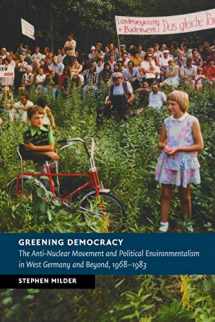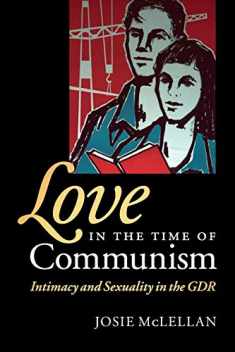
Greening Democracy: The Anti-Nuclear Movement and Political Environmentalism in West Germany and Beyond, 1968–1983 (New Studies in European History)
Book details
Summary
Description
Greening Democracy explains how nuclear energy became a seminal political issue and motivated new democratic engagement in West Germany during the 1970s. Using interviews, as well as the archives of environmental organizations and the Green party, the book traces the development of anti-nuclear protest from the grassroots to parliaments. It argues that worries about specific nuclear reactors became the basis for a widespread anti-nuclear movement only after government officials' unrelenting support for nuclear energy caused reactor opponents to become concerned about the state of their democracy. Surprisingly, many citizens thought transnationally, looking abroad for protest strategies, cooperating with activists in other countries, and conceiving of 'Europe' as a potential means of circumventing recalcitrant officials. At this nexus between local action and global thinking, anti-nuclear protest became the basis for citizens' increasing engagement in self-governance, expanding their conception of democracy well beyond electoral politics and helping to make quotidian personal concerns political.


We would LOVE it if you could help us and other readers by reviewing the book
Book review





